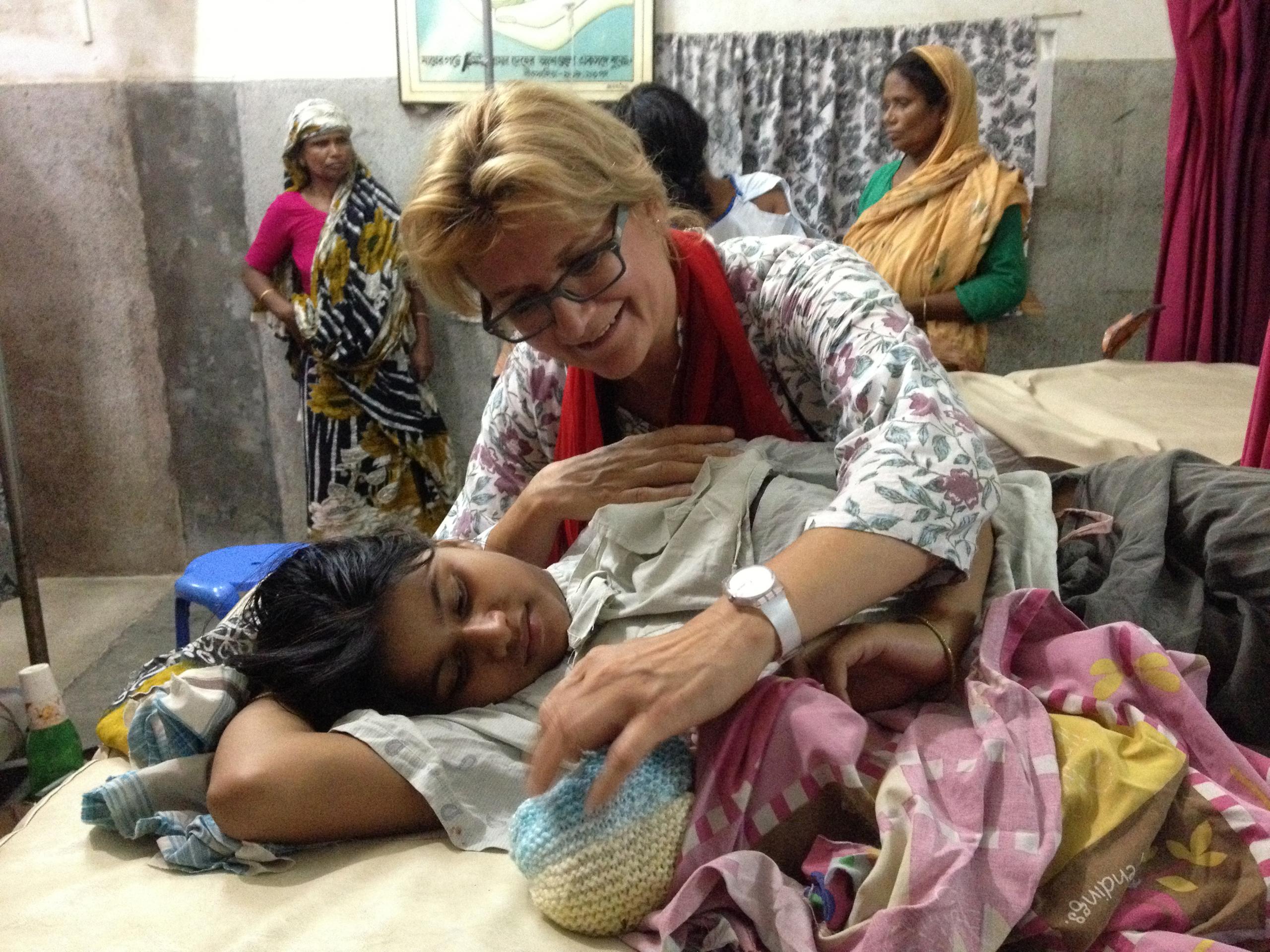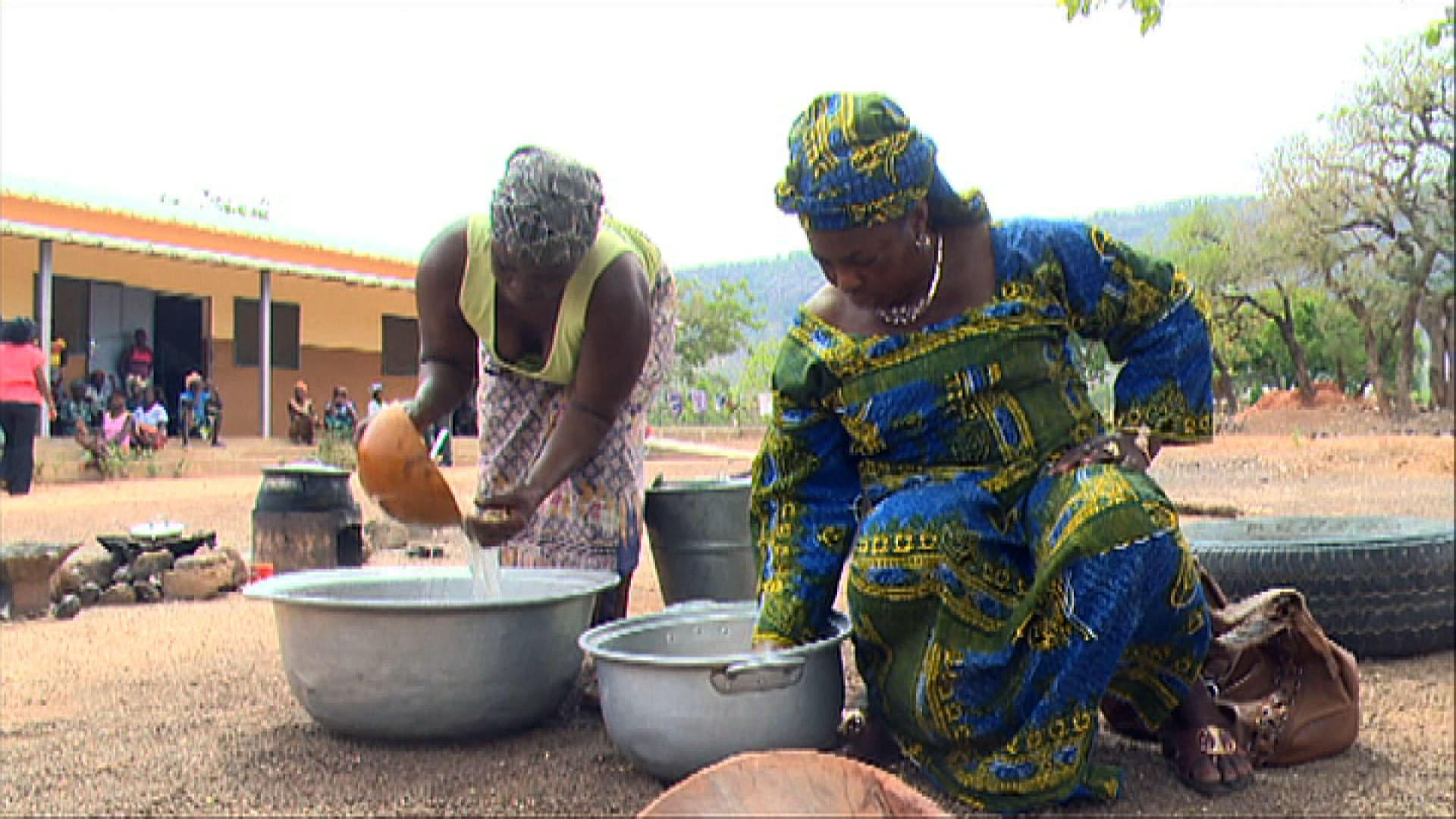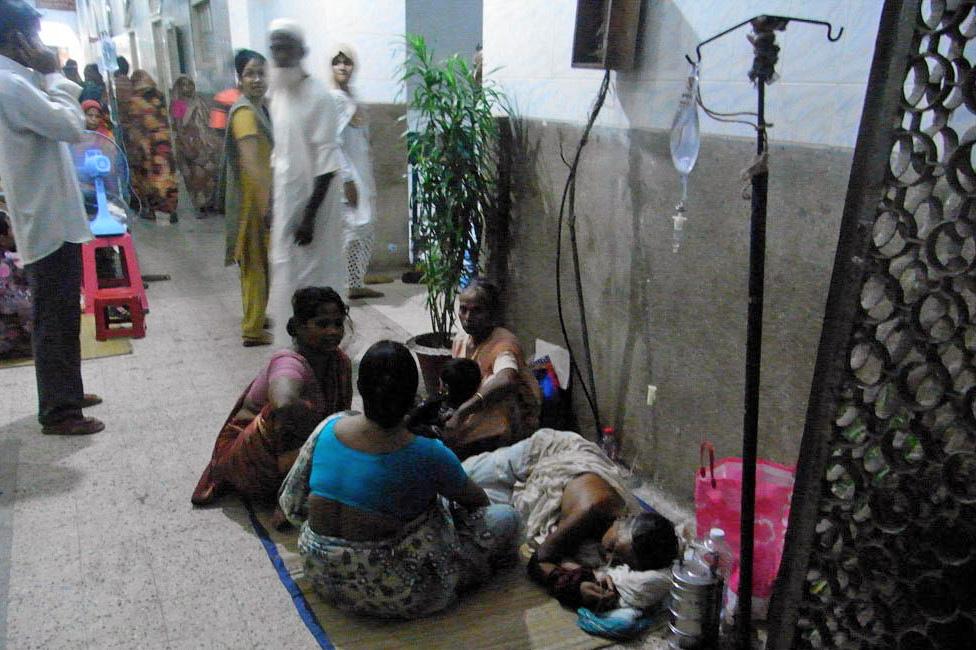
When the dream of motherhood turns into a nightmare

Millions of women in poor countries suffer from the nightmare known as obstetric fistula. After prolonged and unassisted labour, the baby dies and tissues of the mother's lower abdomen are torn. She is left facing a life of incontinence, social exclusion and depression. Swiss gynaecologist Monika Mueller Sapin wants to help prevent it.
The first female gynaecologist to practise in the town of Fribourg, where she opened her surgery 20 years ago this year, Monika Mueller Sapin has always been a humanitarian at heart.
After qualifying in 1985 in Basel, she set off for Zimbabwe for six months to work as a volunteer doctor in a peripheral hospital. Since then, the idea of doing volunteer work in developing countries never left her. But life took its course: work, marriage and children.
When her two boys left to study for a year in the United States in 2012, she decided the time had come to get involved in humanitarian work. By chance, she got into contact with Women’s Hope InternationalExternal link (WHI), an association founded in the Swiss capital, Bern, in 2003 to provide long-term help to women suffering from obstetric fistula.
She was immediately hooked. Since then, Mueller Sapin – who is also the president of the humanitarian action committee of the Swiss Society of Gynaecology External linkandExternal link ObstetricsExternal link and an active member of the Zonta InternationalExternal link club, which works to improve the status of women – has taken part in international conferences on obstetric fistula and organises fundraising evenings for WHI.
But above all, she is quick to exchange the luxury of her surgery for several months for the precariousness of public hospitals in Ethiopia and Bangladesh, where she teaches doctors how to carry out Caesarean sections and ultrasounds and midwives how to prevent obstetric fistula.
swissinfo.ch: Very few people know what obstetric fistula is, or have even heard of it. Yet tens of thousands of new cases occur each year…
Monika Mueller Sapin: It’s a childbirth injury that is little known, in fact almost unknown, even among Swiss gynaecological doctors. The condition is absent from our training since it concerns developing countries. I discovered it just four years ago through WHI. And contrary to what one might think, obstetric fistula is only rarely due to genital mutilation, but mainly to prolonged labour without qualified assistance and without the possibility of carrying out a Caesarean section.
Obstetric fistula is one of the most serious and tragic childbirth injuries. It is a hole between the birth canal and bladder or rectum caused by prolonged, obstructed labour without treatment. It leaves women leaking urine, faeces or both through the vagina, and often leads to chronic medical problems.
swissinfo.ch: It’s a problem that has clearly moved you deeply, since you’ve already made several trips to Africa and Asia to help prevent fistula.
M.M.S.: As a gynaecologist, I was very quickly captivated and moved by the subject and I soon had the chance to accompany a WHI team to Ethiopia for a week, and then to work for three months in a public hospital there in 2012. My first experience in Addis Ababa was in a large specialised centre called the Hamlin Fistula HospitalExternal link (HFH), which has an international reputation in fistula surgery. That’s how I started to get involved in teaching and prevention.
swissinfo.ch: What were your first impressions on discovering the victims of this childbirth injury, which has practically been eradicated in rich countries?
M.M.S.: When I entered the well-equipped operating room of the HFH for the first time – and we must remember that this is a private hospital with many means and therefore an exception – I thought that the patients were suffering from polio.
But I was told that obstetric fistula also causes mobility problems for the victims. In this centre, the patients often undergo a lengthy preparation before their operations, because not only are they suffering from severe incontinence, but they are often already much weakened by malnutrition, chronic infections and even paralysis.

More
Geneva doctor helps women hurt by childbirth
swissinfo.ch: How does obstetric fistula reduce mobility?
M.M.S.: Firstly, prolonged labour can damage the pelvic nerves. Then, after they become incontinent, these women and girls – for many of the victims are very young – often remain isolated in small huts outside their communities, much like dogs.
They no longer get up. They often stay lying down or curled up in a foetal position because they are in such pain and sinking into deep depression. This causes contractures of the legs and they become virtually paralysed.
But to be able to operate on the patients vaginally, you have to place them in a gynaecological examination position. So they have to be able to open their legs, which requires prior physiotherapy. Then, after the operation, if it is successful, they have to learn how to walk and move about again. The next stage is re-joining their communities and active life.

swissinfo.ch: The success of the operation is therefore not always guaranteed?
M.M.S.: An operation is successful if all leakage stops. But it can sometimes fail because the tissues are in very poor condition, so once the catheter is removed everything gives way and the leaking starts again.
There are women who have had several operations and we’ve had to tell them that they will remain incontinent. Meanwhile, all this could have been avoided with a Caesarean section.
We must also remember the conditions in which these women are operated on in poorly-equipped peripheral hospitals. There, fistula is just one daily problem among many.
Let me share an excellent quote I heard at an international conference: ‘The problem of fistula is the mirror of a country’s degree of development.’ The rate of obstetric fistula indicates a country’s poverty rate.Imagine the long distances that pregnant women have to travel on foot to reach a hospital. And on top of the dilapidated infrastructure and shortage of staff and resources is the cultural factor in societies where men dominate and decide everything.
It’s the man who says when the woman can go for a pregnancy check-up, where she will give birth and whether or not he will pay for her admission to hospital.

swissinfo.ch: Do the men refuse to pay, or they don’t have the means?
M.M.S.: Both. I witnessed a situation while working at a public hospital in Ethiopia which marked me deeply.
In the middle of the night a truck dropped off a woman who was almost dying: she had abdominal bleeding and the baby was already dead.
Since there is no health insurance, the family was told first to go to the hospital desk – if it was open – to pay for the material. The hospital itself had nothing: the cupboards were empty, there wasn’t a pair of gloves or a single drip. And this was a relatively large public hospital.
We couldn’t do anything until the family had returned with the material. After giving the woman an intravenous infusion, we had to decide whether to operate. Her family did not have the means. My only act as a doctor after stabilising her was to pay for her transport to another hospital, where she was fortunately saved.
But other families left with their patients because they did not want to pay. The outcome was clear: death.
swissinfo.ch: So the value and status of women are also at the heart of the problem...
M.M.S.: If there is no recognition of women and their worth, nothing is invested. They are replaced.
It’s a disaster. The cultural influence is enormous and the status of women depends on it. So the fight against fistula is also done through educating girls.
If they leave their huts to go to school, they will be less likely to be married at age ten or 12 and less in danger of getting pregnant before their bodies are ready to have a child because their pelvis is not fully developed.
Education will also help protect them from the myths and popular beliefs which make them guilty of their own misfortunes. Victims of fistula often think that evil spirits have punished them, and that fistula is actually a curse. They lose all self-esteem. This explains the high suicide rate among victims.
Translated by Julia Bassam

In compliance with the JTI standards
More: SWI swissinfo.ch certified by the Journalism Trust Initiative




























You can find an overview of ongoing debates with our journalists here . Please join us!
If you want to start a conversation about a topic raised in this article or want to report factual errors, email us at english@swissinfo.ch.